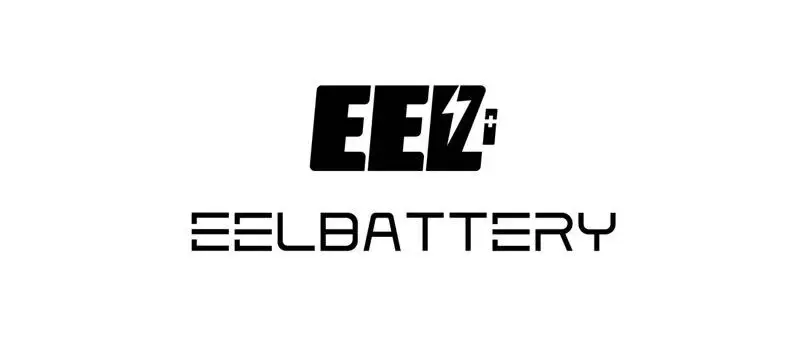Bluedog225
Texas
- Joined
- Nov 18, 2019
- Messages
- 2,914
V2L?
Edit-vehicle-to-load (V2L)
Edit-vehicle-to-load (V2L)
This is not an insignificant consideration. For the same quality of housing it won't be cheap, plus adding terminals and other fixtures. And the extra tools required.And of course, you have to add a housing of some kind.
V2L is typically not bidirectional. It's a source of (limited) AC power supplied by the EV's inbuilt inverter. Like having an oversized portable power station. Most EVs with V2L use a separate plug to connect loads to but you can't charge the EV through it.If they get the cost of EV down, and tech such as V2L takes off, a car can become essentially an extension to a DIY effort. I'm waiting for a decent EV with V2L and an LFP battery to become available, since it will then just become an extension to my home battery while at the same time will allow me to help maximize the use of my energy production. Cheaper EVs will likely also mean that the second life storage for DIY will become more easily available at lower costs and more options.
This is not an insignificant consideration. For the same quality of housing it won't be cheap, plus adding terminals and other fixtures. And the extra tools required.
Size, weight and form factor also matters.
I can lug individual 5 kWh batteries and they will fit inside my existing cabinet space. I can't however lug a single DIY 15 kWh battery, it would need to be built in situ and I don't think I could do that.
V2L is typically not bidirectional. It's a source of (limited) AC power supplied by the EV's inbuilt inverter. Like having an oversized portable power station. Most EVs with V2L use a separate plug to connect loads to but you can't charge the EV through it.

Labor being relatively cheap in Asia (especially considering assembly line process), why are DIY and kits so much cheaper than their finished rack battery product?I just wanted to add a (looks like) good source for battery boxes/cases for the DIY:

Shenzhen Eel Battery Co., Ltd. - LiFePO4 Battery Cell, LiFePO4 Battery Pack
Shenzhen Eel Battery Co., Ltd., Experts in Manufacturing and Exporting LiFePO4 Battery Cell, LiFePO4 Battery Pack and 0 more Products.cneel.en.alibaba.com
I just wanted to add a (looks like) good source for battery boxes/cases for the DIY:

Shenzhen Eel Battery Co., Ltd. - LiFePO4 Battery Cell, LiFePO4 Battery Pack
Shenzhen Eel Battery Co., Ltd., Experts in Manufacturing and Exporting LiFePO4 Battery Cell, LiFePO4 Battery Pack and 0 more Products.cneel.en.alibaba.com
Labor being relatively cheap in Asia (especially considering assembly line process), why are DIY and kits so much cheaper than their finished rack battery product?
Are you referring to this seller from Alibaba?For the cells, I'm using Luyuan as a reference this time. I asked for a quote for 16 cells, delivered to Finland.
Is Hankzor this BMS seller in Aliexpress?I'm sticking to the JK BMS. The 200A with 2A balancing would set me back $208 with free shipping based on current prices at Hankzor.
Is this the fuse you are talking about?Since class T fuses are still almost impossible to get, I'm going to go with BS88 fuses, 125LET Eaton Bussman. Conrad.com lists them at around $26.
could you share those prices and suppliers steve ?Luyuan is a Known Good Vendor. They sell everything you need including the JKBMS (Cheaper than Hankzor too btw).
Shipping from China costs "per box + weight" and if you buy from one vendor they can package bits & pieces into one box and save you money on S&H and other things... every box has a minimum cost regardless, so if you can buy most everything from one place, you can save money. BTW Luyuan doesn't screw around with warranty issues and such (like so many others).
NOTE: I just received notifications from 3 suppliers advising of significant retail price drops for cells. To get a current & accurate pricing, open Chat/Messenger session on Alibaba / AliExpress with the vendrs to get that until things are updated.
I'm seeing $223.19 per cell for an order of 16 cells of the EVE 304s from Luyuan shipped to USA ... I must be missing something.could you share those prices and suppliers steve ?
bout to order more ( already have a quote) , and seller is pushing a bit , i think i know why now
well i got a pricing of 114/cell for lf304 ( b grade) , that is ex shipping.I'm seeing $223.19 per cell for an order of 16 cells of the EVE 304s from Luyuan shipped to USA ... I must be missing something.
Well sure ... for B Grade. You know those gradings !! I'm looking for AAA+ Certified EV Jet Fuel grade myself. ? (not a bad price BTW)well i got a pricing of 114/cell for lf304 ( b grade) , that is ex shipping.
total for 16 cells and ddp shipping is around 2160
Well sure ... for B Grade. You know those gradings !! I'm looking for AAA+ Certified EV Jet Fuel grade myself. ? (not a bad price BTW)


